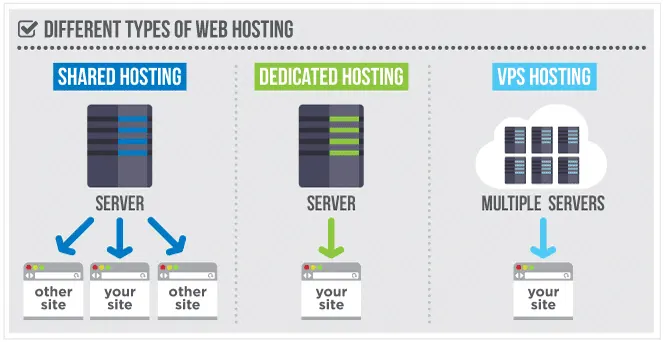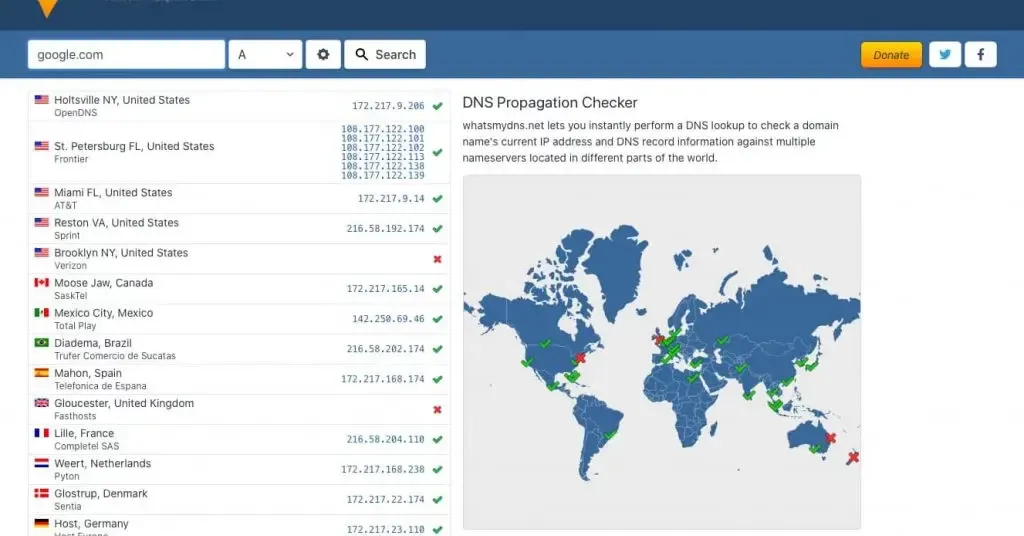How to Set Up Website Hosting and Domain Name in 15 minutes

Website hosting is a virtual lease for your website to exist in the digital realm. If you’d like to own a website, it will need to be hosted with a website hosting company. With a website hosting service, it enables you to access your files anywhere at any point of time.
How to select a suitable website hosting plan for your website?
Step 1: Choose a Website Hosting Company
There are hundreds of website hosting companies in the market but to ensure a successful operation for your website. Other than choosing a reputable website hosting company, it is also just as important to choose the right website hosting plan that fits your requirements.
Most of the website hosting company provides similar web hosting plans, but what truly sets them apart are the customer service support and how easy they made their dashboard easy for users to navigate around.
A2 Hosting - 51% OFF Code Applied
Best Customer Service Support Rating: 4.8

Bluehost - 60% OFF Code Applied
Best User Interface Dashboard Rating: 4.7

Hostgator - 65% OFF Code Applied
Best For Website Service Uptime Rating: 4.7

Step 2: Choose a Website Hosting Plan
Website hosting companies provide different packaged plans that your website needs to be hosted virtually. Similar to mobile plans, every website hosting plans are packaged differently with various features by the website hosting companies. You’ll how to differentiate these 3 website hosting plans and identify what you need for your website or online business.

Most website hosting companies offer similar website hosting plans which are Shared Hosting, VPS Hosting and Dedicated Server Hosting. These 3 website hosting have very different features in terms of the volume of traffic that they can handle, complexity of the setup and security feature. For those reasons, they are priced differently.
Shared Hosting
Shared Hosting plan are most affordable and suitable for small to medium size websites owners who are just starting out. This type of plan is the easiest to set up and manage fast especially if you do not have much experience.
By choosing Shared Hosting Plan, you will be able to host different domain names and establish your online presence with multiple website and web pages. However, the downside for this plan is that it will be unsuitable to serve high incoming web traffic from website visitors.
Virtual Private Server
Virtual Private Server, otherwise known as VPS hosting plan, is best for a website with higher web traffic as the VPS hosting plan has higher resource limits on like RAM and bandwidth as compared to a Shared Hosting Plan. VPS hosting plan is more suitable if you have a personal website with a high volume of web traffic or if you own a small business website.
VPS allows you the luxury of experiencing fast loading speed for your website, it is incredible in handling web traffic surges, and it is not too expensive.
Dedicated Server
Dedicated Server Hosting Plan is most suitable for website handling high incoming level of web traffic, with a need to store a huge amount of data, which includes a demand for high performance, security and reliability.
In fact, this option is the one of the most expensive plan that offers complete control over the entire server and is unsuitable for inexperienced site owners who do not have any technical help to manage the servers. In other words, you own the entire server for your own use.
If you’ll require this type of hosting plan, you will most likely need an in-house technical support team. Alternatively, you can also seek technical expert help from the website hosting companies which most website hosting companies provide.
Hosting Plan Comparison Charts
Website Hosting Companies provides different tiers of website hosting plans that caters to your demands. You can use the comparison chart below to find the most suitable website hosting plan for your use.
Basic Shared Hosting Plan Comparison
[table id=2 /]
Managed VPS Hosting Plan Comparison
[table id=3 /]
Managed Dedicated Hosting Plan Comparison
[table id=4 /]
Disclaimer: Data shown above are dated as of 24th Jan 2021. Please do take note that they are subjected to change and we highly advise you to do you due diligence to check as well.
Hosting Plan Features
Other than the types of website hosting plans, these are some of the features that you should take into considerations when choosing a website hosting plan:
- Fast Loading Speed
- Excellent 24/7 customer support
- 99.9% uptime
- Affordable pricing
- Storage
- Bandwidth
Loading Speed

Loading speed is important for any website’s performance because you want to make sure your website easily accessible for your visitors. On the contrary, a bad hosting with slow loading speed can cause unpleasant user experience and as a result, visitors drop out. Honestly, would you wait too long for a website to load?
24/7 customer support

Regardless if you’re an experienced or inexperienced user, customer support is another important factor when doing web hosting comparison. You’d want to resolve any unforeseen technical issues that may come along.
For example: if you’re running a digital marketing campaign to drive traffic to your website, you’d want your web hosting to be able to handle a traffic surge. To do that, you need to check with your customer support representative on.
99.9% uptime Commitment

Uptime refers to the amount of time that your website hosting provider is available and operational. 0.1% of the time that your website experience downtime, may be due to technical upgrades and maintenance.
Affordable Price

Cheap and Reliable website hosting is the best combination that a website hosting provider can provide. On top of the attractive package, web hosting plan usually would provide incentive freebies like one year worth of SSL certificate for your website and WHOIS protection.
Storage

Website hosting companies caters different tiers of storage space you to store all the files that your website needs. For example, files like images, videos and codes that makes up your website.
Bandwidth

Getting high bandwidth from your website hosting provider ensures high-speed interaction and sufficient volume of data that can be transacted to your website when there is a spike in web traffic. Such a scenario can cause high bandwidth request from your website hosting’s server
Step 3: Purchase & Integrate your Domain Name
Most website hosting providers sells domains other than their website hosting plans. If you’ve decided to purchase both domain name and website hosting together with the company, the integration is most likely to be configured for you.
However, if you’ve purchased your domain from a different company, you’ll need to configure your name server pointing to your website hosting so that your domain will not return an error when searched.
This integration is to be configured in your domain name registrar’s dashboard under the DNS settings. You’ll need to look for your website hosting name sever and update it accordingly.
How to Set Up Your Web Hosting and Domain Name Registrar
Step 1: Manage your domain

After purchasing your domain name from NameCheap, go into your dashboard and click on manage your domain name.
Step 2: Update your DNS settings in Domain Registrar Panel
Look for Name Servers, and select custom DNS.
Usually your DNS information are provided to your on your Customer Portal/ Dashboard/Emailed to you. It’s important to save these information somewhere safe, as you’ll need them in the future.

A2hosting
For example, if you’re using a2hosting’s shared hosting accounts use the following name servers:
ns1.a2hosting.com,
ns2.a2hosting.com,
ns3.a2hosting.com,
ns4.a2hosting.com
Bluehost
If you’re using Bluehost’s website hosting plans, you can configure your DNS with the following name servers:
ns1.bluehost.com
ns2.bluehost.com
Hostgator
If you’re using Hostgator’s website hosting plans instead, you can configure your DNS with the following name servers from either your welcome email or your Hostgator dashboard.
Step 3: Wait for Propagation
Propagation time simply refers to the time that is needed for your DNS (domain name system)to update on all the servers globally. Once they have been updated, your domain name will be able to work properly.
DNS nameserver update can be instantly or from anytime between 24–48 hours.
So, sit back and wait for the changes to take effect.
If you’ll like to know how the status of the update, simple use this free tool to check the status of your DNS update: https://www.whatsmydns.net/

Regardless if you are just starting out sourcing for a solution to your website hosting or a solution to scale in the near future, you will have to repeat this process to source for a compatible website hosting plan for your use. And that is to learn how to identify your need, and the performance features that are provided to you.
These are the important consideration factors to choosing a website hosting plan for your next project and that is, the type of website hosting plan, its performance features, the reliability of the company, and the website hosting plan’s price point.
We hope that you have to find this article useful. Leave a comment below and let us know if this has worked for you.
We curate content all about website, digital marketing and all things digital to help you strive in your digital journey.
Subscribe to our site and stay tuned for more guided content and tips like this one
If you have not purchased your domain name, you should check out this quick guide on ‘How you can purchase your domain name in 5 minutes’.


